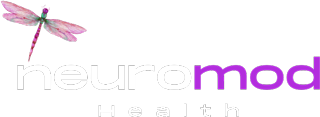Blog
From Darkness to Light: The Evolution of Mental Health Care in Depression Recovery
- March 5, 2024
-
NeuroMod Health

In the intricate tapestry of mental health care, the journey from darkness to light is a profound exploration of resilience and healing. As we delve into the evolution of approaches to depression recovery, we witness a transformative shift in methodologies that has ushered in a new era of hope and understanding.
Traditionally, the treatment landscape for depression was dominated by pharmacotherapy and talk therapy. While these methods have proven beneficial for many, the evolving understanding of mental health has paved the way for a more comprehensive and personalized approach. The recognition that one size does not fit all has led to a nuanced exploration of diverse modalities.
Recent Posts

Does TMS Hurt? Common Myths About the Procedure
Cognitive-behavioral therapy (CBT), once a cornerstone of depression treatment, has undergone significant refinement. Therapists now integrate evidence-based practices and tailor interventions to individual needs. The emphasis on empowering individuals to identify and challenge negative thought patterns has become a central tenet, allowing for a more dynamic and personalized therapeutic experience.
In recent years, the advent of innovative technologies has expanded the scope of mental health care. Mobile applications and online platforms offer accessible resources for individuals seeking support outside the confines of traditional therapy sessions. These digital tools not only facilitate ongoing self-reflection but also connect users with supportive communities, fostering a sense of belonging crucial to the recovery process.
Mindfulness and meditation have also emerged as powerful tools in the arsenal against depression. The incorporation of mindfulness-based interventions into therapy sessions and standalone practices has demonstrated efficacy in alleviating symptoms and preventing relapse. The focus on being present in the moment and cultivating self-compassion resonates with individuals traversing the complexities of depression.
Additionally, the field of psychopharmacology has witnessed advancements that contribute to a more targeted and personalized approach. Tailoring medication regimens to an individual’s unique neurochemistry is becoming increasingly common, minimizing side effects and enhancing overall treatment effectiveness. This precision medicine approach represents a significant stride toward optimizing the balance between symptom management and quality of life.
Furthermore, holistic approaches to mental health care, encompassing physical well-being and lifestyle factors, have gained prominence. Recognizing the intricate connection between the mind and body, clinicians now emphasize the importance of nutrition, exercise, and sleep in depression recovery. Lifestyle modifications are seen not as supplementary but integral components of a comprehensive treatment plan.
As we uncover the evolving landscape of depression recovery, it is evident that the journey from darkness to light is no longer a solitary path. The collaborative efforts of mental health


